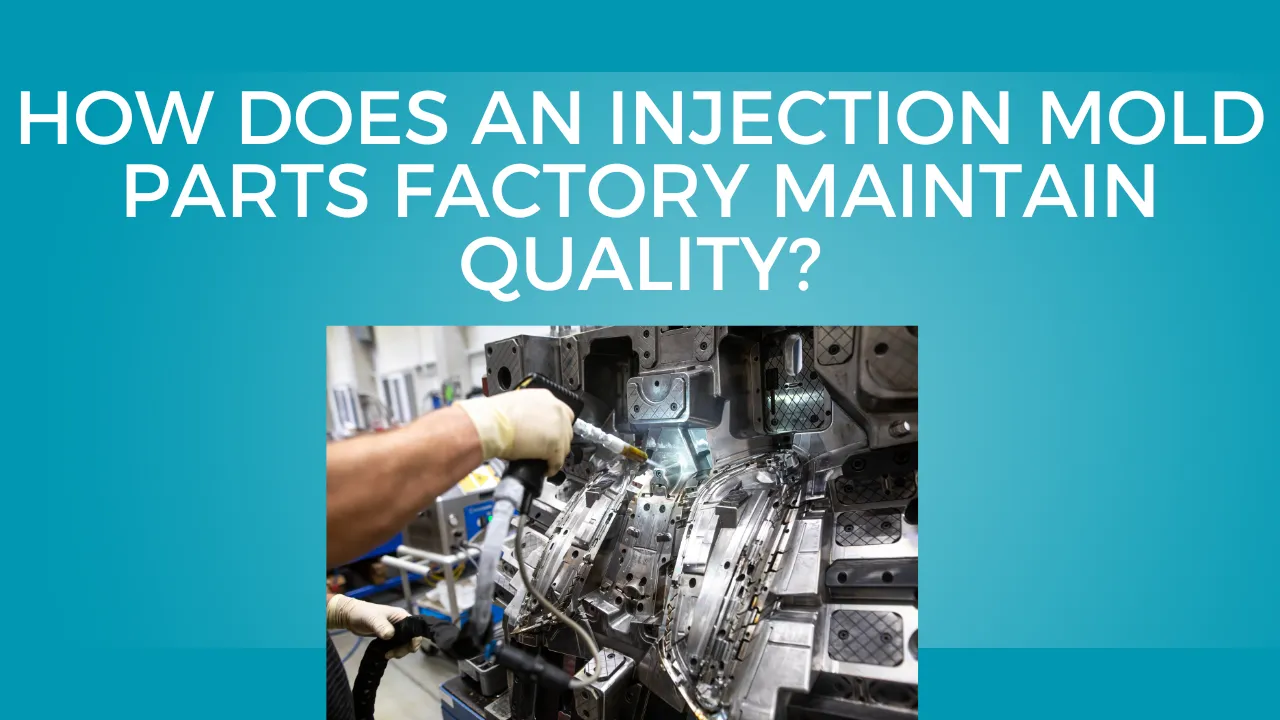When companies outsource production, one of the biggest concerns is quality. This is especially true when dealing with plastics, where a minor flaw can compromise the durability, safety, or appearance of a final product. That’s why businesses often ask: how does an injection mold parts factory maintain quality?
The answer lies in a carefully structured process that involves advanced machinery, skilled technicians, strict quality control protocols, and continuous improvements. A reliable plastic mold parts manufacturer doesn’t just focus on producing parts; it focuses on ensuring that every batch meets the required standards consistently. Let’s explore the key practices that help these factories maintain top-tier quality.
Precision in Mold Design and Manufacturing
Quality begins long before the first piece of plastic is molded. An injection mold parts factory invests heavily in precision tooling. The mold itself is the heart of the process—if it’s not accurate, every part produced from it will carry flaws.
Factories use CNC machines, electrical discharge machining (EDM), and computer-aided design (CAD) systems to ensure molds are crafted with extreme accuracy. By holding tolerances down to microns, a skilled plastic mold parts manufacturer ensures parts fit perfectly and function as intended. Investing in advanced mold-making technology is the foundation of consistent quality.
Rigorous Material Selection
Another critical factor in maintaining quality is material selection. A professional injection mold parts factory doesn’t just accept any plastic resin—it carefully evaluates and sources the right materials for the job.
For example, ABS may be perfect for durable consumer goods, while medical-grade polypropylene may be needed for healthcare products. A trusted plastic mold parts manufacturer often works with certified suppliers and may even conduct its own tests to confirm material properties like tensile strength, chemical resistance, and heat tolerance. This ensures that the raw material itself won’t compromise the final product.
Controlled Production Processes
Once the mold and materials are ready, the injection molding process begins. Quality here depends on controlling every variable: temperature, pressure, cooling time, and injection speed. Even a slight deviation can cause defects like warping, sink marks, or incomplete fills.
An injection mold parts factory maintains quality by automating these parameters with computer-controlled machines. Skilled technicians then monitor the process, making real-time adjustments when necessary. This combination of automation and human oversight creates consistency across thousands—or millions—of parts.
In-Process Quality Checks
Producing parts without verification is risky, which is why in-process inspections are critical. A professional plastic mold parts manufacturer has inspectors who perform random checks during production runs. They measure part dimensions, check surface finishes, and look for defects.
For example, if a batch of parts begins showing uneven coloring or size variations, the factory can stop production, correct the issue, and prevent defective parts from reaching the client. These proactive checks reduce waste and ensure customer satisfaction.
Advanced Testing and Certification
Some industries—like automotive, aerospace, or medical—demand parts that meet strict regulations. To serve these industries, an injection mold parts factory uses advanced testing methods such as tensile testing, impact resistance tests, and even X-ray inspections for internal flaws.
In addition, a leading plastic mold parts manufacturer often maintains certifications like ISO 9001 or IATF 16949. These certifications aren’t just paperwork; they represent a commitment to systematic quality management. Regular audits and compliance requirements keep the factory accountable for maintaining high standards.
Skilled Workforce and Training
Machines and technology are vital, but human expertise plays an equally important role. A reliable injection mold parts factory invests in training its workforce to recognize defects, operate equipment correctly, and apply best practices in mold maintenance.
Technicians who understand materials science, mold design, and process optimization are invaluable for ensuring quality. In fact, many of the best factories retain long-term employees whose experience allows them to spot problems even before machines detect them. This combination of skill and experience adds another layer of assurance for clients.
Preventive Maintenance of Equipment and Molds
Quality isn’t just about the parts—it’s also about the tools and machines producing them. A trusted plastic mold parts manufacturer schedules regular preventive maintenance for both molds and machines.
Molds are cleaned, polished, and checked for wear to ensure they continue producing accurate parts. Machines are calibrated and serviced to maintain consistent performance. Without this maintenance, even the best-designed molds could produce defective parts over time. By protecting their tools and equipment, factories protect their clients’ products.
Continuous Improvement Culture
The best injection mold parts factories don’t stop at meeting today’s quality requirements—they continuously strive to improve. They analyze production data, track defects, and implement changes to reduce errors in the future.
This culture of continuous improvement is often part of lean manufacturing or Six Sigma practices. It ensures that the factory not only maintains high quality but actually enhances its capabilities over time. For clients, this means better results with each new project.
Building Long-Term Trust with Clients
Finally, maintaining quality is about more than technical processes—it’s about building trust. A professional plastic mold parts manufacturer communicates transparently with clients, shares quality reports, and addresses concerns quickly. This open relationship fosters confidence and ensures that quality is seen not just as a promise but as a proven track record.
In my own experience, the best factories are the ones that treat clients as partners. They don’t just deliver parts; they share insights, suggest design improvements, and provide after-sales support. This partnership approach reinforces quality at every stage.
Final Thoughts
So, how does an injection mold parts factory maintain quality? It’s a combination of precision mold design, careful material selection, controlled processes, in-process inspections, advanced testing, skilled staff, and preventive maintenance. Backed by certifications and a culture of continuous improvement, these practices ensure that every part meets expectations.
Ultimately, a dependable plastic mold parts manufacturer doesn’t leave quality to chance—it builds quality into every step of the process. This is what gives businesses the confidence to trust these factories with products that matter to their success.











